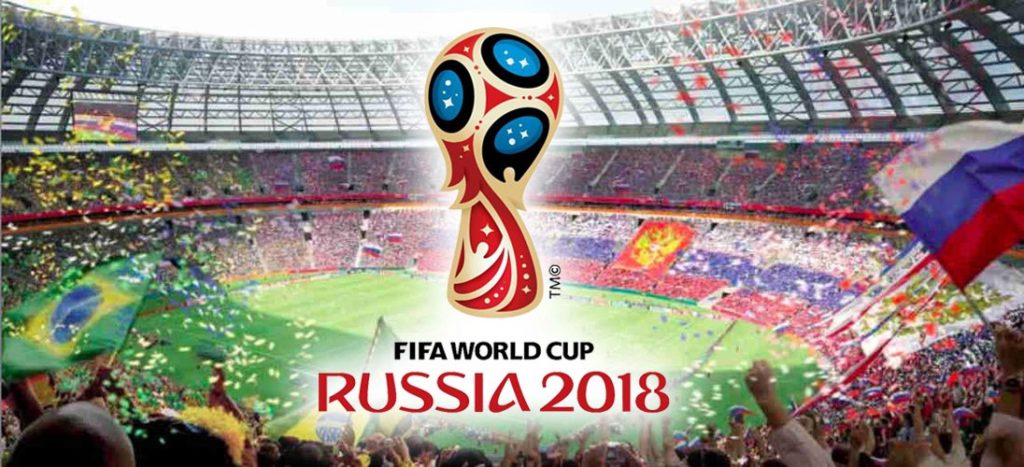On the World Football Cup and Education for a Culture of Peace
TRANSCEND MEMBERS, 11 Jun 2018
Prof. Alicia Cabezudo – TRANSCEND Media Service
11 Jun 2018 – School life can be seen as an imaginary “front-line” crossed in multiple directions by diverse types of violence actually present in almost all societies.
The violence of the socio-economic system, with its continuous adjustments creates poverty and misery for a large number of the world’s population.
The violence in the political system, exercised by governments that pretend to practice fair representation while civil society demands also accurate ethical conduct, transparency, full democratic participation, respect for minorities, and consensus decision making processes.
Finally, the daily life violence is present in private and public spaces and tends to be reproduced in all kind of activities including workplaces, business, sport fields, academia centers, education and community sites.
In summary, the socio-economic situation that creates marginality and social class gaps injects into society different types of violence rooted in injustice, inequity and frustration. Even sport celebrations come to be – too often – violent nightmares instead of friendly spaces for enjoying good time.
In the last years this has been happening widely in football matches and in many other sports. We need to approach sporting events from another angle.
The Football World Cup should be a joyful celebration for adults, children, youngsters, and for the whole population at large. It is a worldwide festival in which people live affixed to TV matches, scores, results, bets, penalties, famous football players’ names and infinite winning combinations.
The Cup is the main subject of conversation in friendly talks with neighbors, family members and working partners. It becomes an open topic for dialogue; for defending different options and positions; for sharing sport passions and expectations; for lunching or dining with others and mainly for sharing free time in a jolly and collective way.
It is a kind of celebration that facilitates meetings, open communication, exchange of different ideas and socialization through affective (and effective!) relationships. All of them valuable patterns applicable in a teaching-learning process.
We have an extraordinary opportunity to make this celebration a new learning experience in the education field where the importance of living together, respect for “others,” interculturality as a social strength and the sense of collective work toward shared social goals can be discussed as dimensions of an ethical and political “curriculum.”
Why not transform the World Cup into a democratic education space where football “popular knowledge,” experiences, stories and practices can be approached as relevant teaching resources for a better understanding of the present world?
Why not approaching the World Cup as a teaching tool giving us the chance to re-think diversity in our societies – which are usually learnt as a kind of construction over unique cultural, ethnic and geographical roots?
We can develop studies of “far and exotic” countries (how “far and exotic” can they be, when their peoples are our next-door neighbors in the same streets of our multicultural cities?).We can suggest readings on unknown geographical sites; research on different ways of government and laws; arts, crafts and customs; religions and cults.
We can also propose new themes on the past and present history of diverse regions; economic relationships; trade and business; common problems shared by many states and also suggest collective search for solutions.
These topics might open possibilities for reflecting, exchanging and learning in an active process and . . . all these possibilities are certainly more creative than only “watching” the international matches.
The possible application of the World Cup as an educational resource in creating Culture(s) of Peace requires a reorientation of the traditional learning approach taken to such global sporting events where educators generally develop a mechanical recitation of the countries listed in the Cup and a passive observation of unknown countries lost on the maps – suddenly becoming well-known Big Ones due to favorable match outcomes.
The football teams offer via their diversity and differences – and their multiple ways of life and visions – the possibility of rich dialogue and exchange, generating new lessons on political, religious and cultural pluralism. This dimension should enrich the learning process and become a fundamental pillar in the democratic and civic formation of children, youngsters and adults.
The construction of these values; the defense and the recognition of the right for self-governance of nations; the right to peace as a human right; the respect for the international law; the learning of the collective and social efforts of human beings throughout history in order to be actors in social and political, transformation – all these themes are part of the pedagogical proposal presented in this article.
It’s time that countries decide to be “good football teams” where “each football player” contributes from its “position” to the urgent construction of “scores and results” that support harmony, peace, non violence and international solidarity.
These “football teams,” when engaged in “fair play” and mutual respect for each other create and model vital lessons of brotherhood and understanding- lessons that the world certainly needs today.
Let’s seize the educational opportunities the World Cup gives us as this global celebration comes to a start in a few days …
_____________________________________________
 Prof. Alicia Cabezudo, Ph.D. is a member of TRANSCEND International, Vice President of the International Peace Bureau-Geneva, of Open University of Catalonia-Barcelona, School of Education University of Rosario-Argentina, former Vice President/Conveyor of IPB Latin American Chapter, IPB Education/Council of Europe/UNESCO/ Global Citizenship Education Team Consultant, and International Association of Peace Educators-AIEP. acabezudo@unr.edu.ar/ – Alicia.cabezudo@ipb.org
Prof. Alicia Cabezudo, Ph.D. is a member of TRANSCEND International, Vice President of the International Peace Bureau-Geneva, of Open University of Catalonia-Barcelona, School of Education University of Rosario-Argentina, former Vice President/Conveyor of IPB Latin American Chapter, IPB Education/Council of Europe/UNESCO/ Global Citizenship Education Team Consultant, and International Association of Peace Educators-AIEP. acabezudo@unr.edu.ar/ – Alicia.cabezudo@ipb.org
This article originally appeared on Transcend Media Service (TMS) on 11 Jun 2018.
Anticopyright: Editorials and articles originated on TMS may be freely reprinted, disseminated, translated and used as background material, provided an acknowledgement and link to the source, TMS: On the World Football Cup and Education for a Culture of Peace, is included. Thank you.
If you enjoyed this article, please donate to TMS to join the growing list of TMS Supporters.

This work is licensed under a CC BY-NC 4.0 License.
